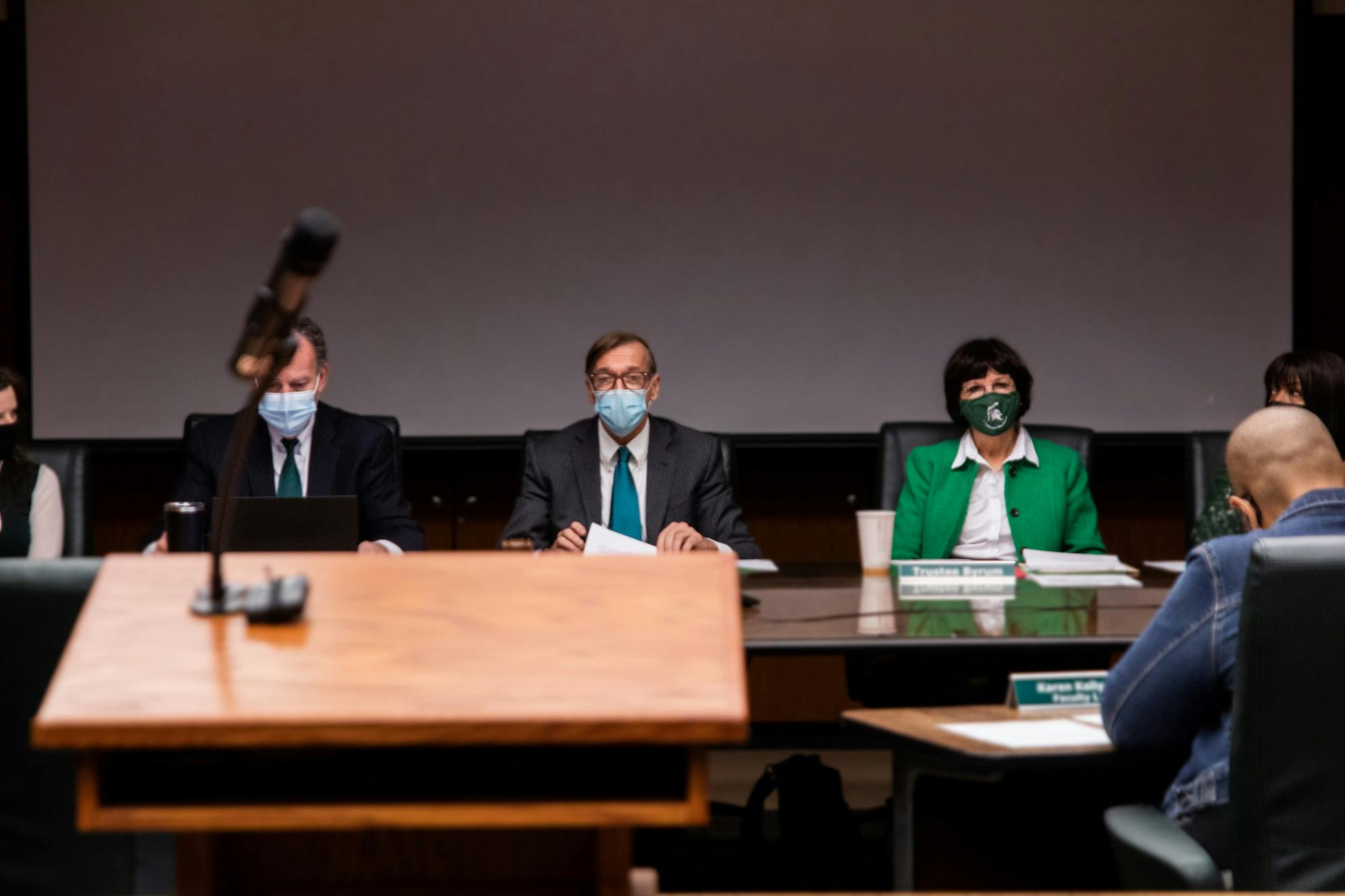Michigan State University President Samuel L. Stanley Jr. has submitted re-certification of the 2021 report that previously fell under scrutiny by board members who claimed it was falsified by Stanley, leading to calls for his resignation.
Members of the Board of Trustees have reviewed the relevant Title IX reports for the fiscal year 2021, allowing Stanley to re-certify the contested report to the state.
Stanley also certified MSU's 2022 Title IX requirement today. The requirement under Michigan law calls for the president and a member of the Board of Trustees to review all Title IX reports involving alleged sexual misconduct of university employees in the respective fiscal year.
While the board claimed Stanley was at fault for the inaccurate certification, on Sept. 13 Stanley said he complied with his part of the requirement but in June was made aware that some members of the board may have not complied with their part.
An internal review of the Title IX certification process by the university’s Office of Audit, Risk, and Compliance took place. The board decided to release the Sept. 13 independent audit by MSU's Chief Audit, Risk and Compliance Officer Marilyn K. Tarrant.
The 2021 certification relied on verbal confirmation from a trustee — which is not the standard certification process — rather than a written verification to confirm. That trustee said they were not part of the process workflow and did not receive case files and could have inaccurately used the third-party Cozen report used for OCR Resolution Agreement.
As of Sept. 13, for the 2022 state of Michigan certification, collection of the completed certification forms to date reveal that 13 cases may not have been reviewed and/or the certification form may not have been completed. Although already submitted and reviewed, this fiscal year's certification is due Oct. 1. The document noted that at this point some summer 2022 cases had not been distributed.
What went wrong?
- The investigation found there was not a comprehensive workflow process in reviewing the files over time.
- Communication from the Office of Civil Rights, or OCR, was inconsistent with the board during the review process.
- Documents sent to the board were large and sent without instruction on what to look at and there was no designated return location identified in some emails.
- The OCR did no follow up on the reviews during the process until June 15, in a sentence "buried near the end of a routine email".
- Training on the certification process was provided to the trustees in Feb. 2021 but was not made required by the OCR Resolution Agreement.
- There was inaccurate information in the certification form provided to the trustees, stating that the certificate of review they sign may be provided to the state of Michigan.
Tarrant's audit recommended the OCR review process should be documented and simplified to allow the “individual" trustees to receive semesterly emails with their assigned cases and a certification form with their name, the semester, and the associated cases. She also suggested a portal for the process.
She also recommended an annual refresher training for trustees regarding the process and the definition of "review" versus "read" should be clarified to the trustees. The OCR case review process should give the trustees to ask any questions they might have during the process.
Additionally, the review stated that the prior academic year should be reviewed to assure the cases distributed were certified on the certification form.
In addition to Tarrant's review, the Board hired outside law firms Honigman LLP and Quinn Emanuel Urquhart & Sullivan LLP to "investigate the 2021 Title IX certification process, provide guidance to the Board in reviewing Title IX reports, identify shortfalls in the process, and make recommendations to improve the process." These reviews remain ongoing.
Support student media!
Please consider donating to The State News and help fund the future of journalism.
Discussion
Share and discuss “Inconsistent messaging led to Title IX compliance failure at heart of issue with Stanley, board” on social media.








